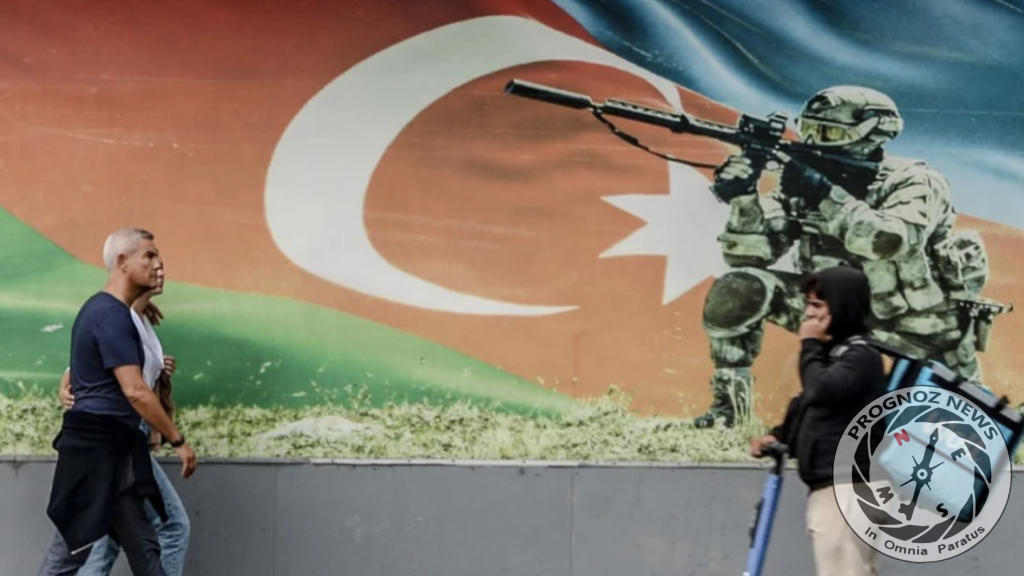𝐀𝐳𝐞𝐫𝐛𝐚𝐢𝐣𝐚𝐧 𝐡𝐚𝐬 𝐛𝐞𝐠𝐮𝐧 𝐚𝐧 𝐨𝐟𝐟𝐞𝐧𝐬𝐢𝐯𝐞 𝐢𝐧 𝐍𝐚𝐠𝐨𝐫𝐧𝐨-𝐊𝐚𝐫𝐚𝐛𝐚𝐤𝐡 𝐚𝐧𝐝 𝐡𝐚𝐬 𝐝𝐞𝐜𝐥𝐚𝐫𝐞𝐝 𝐭𝐡𝐚𝐭 𝐭𝐡𝐞 𝐀𝐫𝐦𝐞𝐧𝐢𝐚𝐧 𝐩𝐨𝐩𝐮𝐥𝐚𝐭𝐢𝐨𝐧 𝐭𝐡𝐞𝐫𝐞 𝐰𝐢𝐥𝐥 𝐛𝐞 “𝐞𝐯𝐚𝐜𝐮𝐚𝐭𝐞𝐝.”
An all-out war may break out after Azerbaijan declared a new military offensive in the breakaway enclave of Nagorno-Karabakh and ordered the evacuation of ethnic Armenians. Months of failed discussions have led to this point, and there has been rising fear that Azerbaijan, supported by Turkey, is preparing to use force to end a conflict that has been dormant for decades. The ethnic Armenian enclave within Azerbaijan has been subject to an increasing food and medicine supply blockade by the government. The Azerbaijani Ministry of Defense has announced that it will be conducting “local anti-terrorist measures” in an effort to “suppress large-scale provocations” in the country. Air raid sirens sounded in Stepanakert, the de facto capital of the unrecognized state, as reports and film footage from Nagorno-Karabakh revealed intense shelling and gunfire in the enclave.
War in the Caucasus is a diplomatic and strategic setback for the European Union, which has been trying to woo Azerbaijan as a potential ally and alternative gas supplier to Russia. Ursula von der Leyen, president of the European Commission, traveled to Azerbaijan in July to negotiate for more natural gas exports.
The Azerbaijani Ministry of Defense claims that the locations of the Armenian armed forces’ formations, their long-term shooting points, and their combat equipment and military facilities are being crippled on the front line and in the depths.
The Armenian Ministry of Defense has not issued any announcements as of now. In Stepanakert, people might hear the noises of explosions.
There have been “activities utilizing high-precision weaponry on the front line and in depth” that have crippled “the locations of formations of the Armenian armed forces, their long-term firing points, as well as combat assets and military infrastructure,” according to the statement.
@prognoz_news












